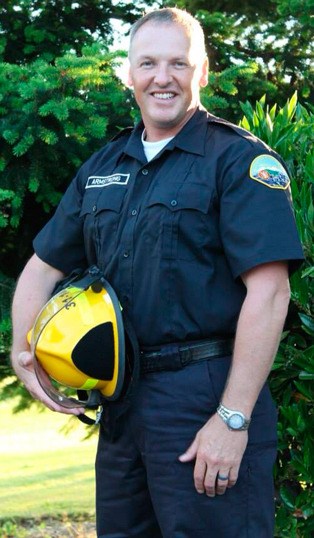When Robert G. Armstrong Jr. was a child growing up in rural New York State, he and his friends used to sneak into a barn that housed a fire truck and pretend to be fireman.
In that same town, whenever an emergency occurred — such as a fire — there was a community volunteer who everyone looked up to and counted on to help them out. He was a local farmer who arrived on the scene, assessed the situation and took charge.
These experiences had a profound affect on Armstrong. He knew by age 10 that he wanted to be the person others counted on to lead. And he wanted to be a fireman.
He became a leader first, turning down a career as a baseball player to join the U.S. Marine Corps, and rising to the rank of Gunnery Sergeant — he retains the handle “Gunny” to this day.
Armstrong served in three wars, directed missions and operations, and trained and led as many as 250 Marines at a time.
After 20 years, he retired and moved to Whidbey Island, where he’s realizing his childhood dream of becoming a firefighter.
He wasn’t on the island two days before heading down to Freeland Station 31 to fill out an application. He finished his training at the academy and became a firefighter in early 2013.
“It’s in my nature to go where people need help,” Armstrong said. “My Scottish grandfather believed that you had to be strong for others and be the ‘first one in and last one out.’ That really stuck with me.”
Perhaps that explains his other volunteer efforts as well. He’s a stay-at-home dad with three young sons, so he coaches little league and cub scouts. He also taught kids in his neighborhood to work with their hands, helping them build a tree fort, go-kart and just about anything that can be built.
People will also occasionally find him talking with at-risk juveniles at the county detention center in Coupeville, sharing stories, providing guidance and helping them understand that the decisions you make in life can make a difference in its outcome.
“I’m teaching my own kids what my grandfather and father taught me,” Armstrong said. “It’s not just about where you live, but about your community and making it the best it can be by getting involved.”


